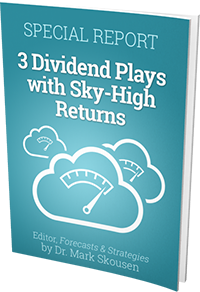This article is part of a series about stock investing aimed at helping individual investors outperform the market.
There is good reason for investors to be extremely careful of anything that seems “too good to be true” in the investing world. That reason takes shape in the Efficient Market Hypothesis (EMH).
The Efficient Market Hypothesis, formally developed in the 1960s at the University of Chicago, has different forms but generally asserts that stock prices already incorporate all known information. A corollary is that an individual investor only can outperform the overall stock market as a result of getting lucky, taking on more risk or possessing inside information.
It is fiercely debatable whether EMH actually holds, but even its most ardent opponent should understand its underlying logic before trying to pick any individual stocks. The logic of EMH basically comes down to the fact that risk-free profits should not exist.
To see why, imagine that there are two different assets that are expected to produce similar cash flows for investors in the future. If one asset is trading at $98 a share while the other is at $100 a share, it would make sense to buy the one at $98 and sell the one at $100. But if enough people started doing this, the prices would quickly converge because everyone would want to sell the overpriced asset and buy the underpriced asset. The “supply” of sellers of the first asset at $98 a share would disappear, as would the supply of buyers of the second asset at $100.
In the stock market today, most trades take place between professional investors such as hedge fund managers, mutual fund managers and professional traders. These investors are highly motivated to do thorough research and analysis on the companies they are buying.
Thus, there is no reason to think that obvious pricing discrepancies like the one above ever would exist. This is known as the “no arbitrage” condition. In its extreme case, it means that all stocks are “rationally” priced and that there is no way to make excess profits in the stock market.
Under the EMH, what drives market volatility — movement in share prices — is news. Any time new information is released to the market, the information results in a nearly instantaneous adjustment of share prices, per the theory of intrinsic value. But with EMH, mispricing (divergence between intrinsic value and market price) is fleeting.
Supporting Evidence from Mutual Fund Returns
One prediction of EMH is that it would be nearly impossible to earn returns above the market average without taking on increased risk, compared to the market risk.
Extensive research on mutual fund returns has confirmed that professional investors generally fail to beat a passive index of all stocks over time:
- In the five-year period ending on December 31, 2012, Standard and Poor’s estimates that 62% of all U.S. large cap equity funds were outperformed by the passive S&P 500 benchmark.
- Academic surveys during the past twenty years have shown that actively managed funds as a whole underperform the stock market by a level equal to their fees, indicating that the average investor would have been much better off with a low-cost index fund or an exchange-traded fund (ETF).
However, this does not necessarily imply an efficient market. In fact, in a world where all equity trades take place between professional investors, it would be nearly impossible for active investors as a whole to “beat” passive investors, since active investors determine stock prices.
A better measure of market efficiency might be whether “smart” investors can reliably beat the market — something that EMH would prevent if it holds true. This is distinct from investors beating the market due to luck, since there always will be some investors who outperform the market due to random chance.
Most studies indicate that past results are poor measures of future long-term performance. In other words, buying the funds that have performed the best in the past would not be a profitable long-term strategy. This seems to indicate that funds’ past performance was a result of luck rather than “skill” in identifying mispriced stocks.
Of course, there is strong anecdotal evidence that some investors do manage to perform better than the market averages. Famous investors such as Warren Buffett, George Soros and other top hedge-fund managers have seemed to beat the odds, with levels of past success that would be very unlikely to occur in a purely random world. Indeed, some studies by famous financial economists have lent weight to these anecdotal observations by indicating that the top 2% of managers do seem to be capable of consistently producing alpha. However, in many cases, the strategies these managers run are off limits to the individual investor, and fees still may capture most of the outperformance.
In another article, Efficient Market Hypothesis anomalies will be explored to help investors to reap above-average returns.
Billy Williams is a 25-year veteran trader and author. For a free strategy guide, “Fundamentals for the Aspiring Trader”, and to learn more about profitable trading, go to www.stockoptionsystem.com.



![[instant messaging via tablets and phones]](https://www.stockinvestor.com/wp-content/uploads/shutterstock_125411345.jpg)
